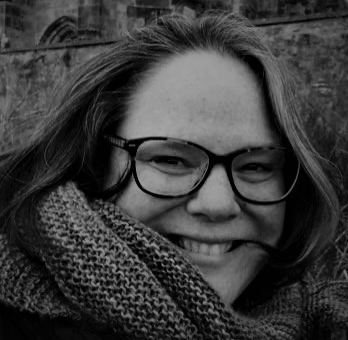
In this post, Heidi Smith continues to showcase the positive outcomes from Residential Learning and Teaching in a pandemic, focusing on creating an authentic learning community, expanding the personal tutor/tutee process, and collaborating successfully with multiple stakeholders. Heidi is a Lecturer in Outdoor Environmental Education at Moray House School of Education and Sport. This post is part of the January and February Learning & Teaching Enhancement Theme: Online/hybrid enhancements in teaching practice.
The University’s response to the pandemic has understandably resulted in the adoption of hybridity which remains focused on indoor and online, spaces and places. The Outdoor Environmental Education programmes in Moray House School of Education and Sport (MHSES) have found ways in which to expand existing hybrid definitions of learning, teaching and research to maintain the outdoors as a key place/space for learning. This resulted in successful residential learning, teaching and research experiences for students throughout the pandemic. The visible outcomes noted so far include development of an authentic learning community, expansion of the personal tutor/tutee process, and the collaboration required.
Authentic Learning Community
The rich and authentic learning community that resulted from programme specific two-week intensive residential learning experiences in the Cairngorms National Park at Rothiemurchus Lodge has been the focus of much feedback from students this academic year. While students identified core academic and professional practice courses as key aspects which directly contributed to their learning experience, they particularly noted the times in between structured learning experiences while living and learning residentially. This allowed them to extend and expand their learning, knowledge and connection; to themselves, each other and the more-than-human places and spaces within the Cairngorms.
Specific ways in which the learning community was expanded beyond the current cohort is through alumni and PhD students facilitating the transition and sharing of knowledge and experience from one cohort to another. With two PhD students undergoing supervision meetings while on the residential block, current students were able to witness this progression from Masters to PhD. The community is further expanded through sessional staff, in some cases alumni themselves, but not always.

Personal tutee/tutor meetings
If the purpose of the personal tutee/tutor process is to enable closer relations with staff and students and providing individual support to students around their studies and personal circumstances, including health and wellbeing, then the residential in many ways met, and exceeded, these expectations. It achieved this through informal opportunities to speak with staff, peers and alumni about personal circumstances and progression through their studies. Students informally arranged personal tutor/tutee meetings with their personal tutor and the programme director throughout the residential block. At times, these meetings were spontaneous over meals, travelling to and from places, and outside formal learning time. When working in this way, the need for the personal tutor system is removed because the academic and the pastoral occur simultaneously.

The people who made it possible
Overwhelmingly, students have shared verbally and through written forms that the residential block has set them up well for their studies through supporting them to develop a strong learning community, experience authentic outdoor and environmental education, and connect to The University of Edinburgh, their programmes, and Scotland.
My [residential] experience has made me feel so much more at home in this program and in Scotland. (Student)

As we move into the second half of the academic year, we would like to thank students for their support of our efforts to collectively create a COVID-free residential learning experience. Without their willingness to engage in open gentle conversations about COVID-safe practices, and ensuring they did not bring COVID to the residential, none of this would have been possible. Similarly, we would like to thank all staff involved (academic, professional services, sessional), the residential site and staff, George Gaff, who similarly ensured a COVID safe space. We would especially like to thank Moray House School of Education and Sport for supporting us and trusting us as we “swept aside challenges as they arose” (Gillian Richardson, Head of Professional Services), and created the “right environments for learning” (Richard Andrews, Head of School). None of this would have been possible without the support of Simon Christie and his team, along with The University of Edinburgh Field Course Guidelines, which supported our dynamic approach to managing COVID.
If you would like to learn more about our team’s and others’ approaches to expanding hybrid learning and teaching to include the outdoors, indoors and online, consider attending the University of Edinburgh Learning and Teaching conference themed sessions: Hybridity reimagined: Teaching experientially in outdoor, indoor and online places.
 Heidi Smith
Heidi Smith
Heidi Smith is a Lecturer of Outdoor Environmental Education with learning, teaching and research interests in outdoor environmental education in all its forms, place-based learning, leadership, praxis, transculturality, and innovative pedagogies.

